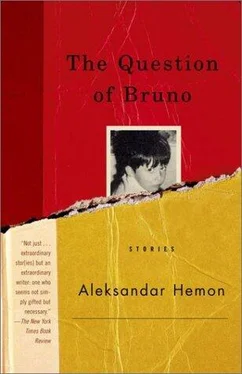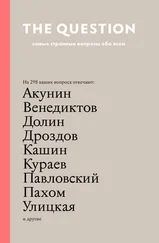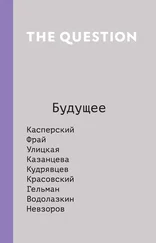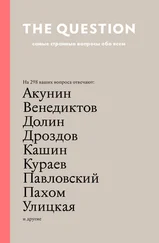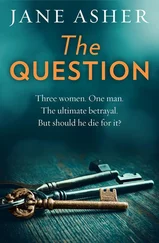One day, I fretfully unscrewed the plywood from the back of the radio and saw the heated, dusty lamps, still, positioned according to some unfathomable logic, like chess pieces. I stared at the entrails of the radio, inhaling warm sneezeful dust, and I didn’t know how it all worked. There were entangled colored sinews connecting the lamps: some lamps had inside a thin glaring wire, like a trapeze, and some of them were dark, as if whoever was in there was sleeping.
My best and only friend’s nickname was Vampire, because he had long and conspicuous eyeteeth, and when I was seven his mother died. She was a tiny, skinny woman who did little but smoke and gossip. Then she abruptly shrank and then she died. “Cancer!” they told me. After the funeral, I had to go to their apartment, they said, just briefly, to pay my respects. I walked into a boxy room full of whimpering adults in black. Someone shoved a glass full of warm, but colorful — flaming orange and red — liquid into my hands. Everyone seemed to have a burnt-to-the-filter cigarette between their blistery fingers. They reeked of sleeplessness, misery, and warm, stale beer. Men were unshaven, with black sleeves rolled wearily halfway up their forearms. Women wore black sweat-soaked scarves around their sallow faces, dabbing tears and sweat-pearls above their lips with the scarves’ corners. They scurried around, mindfully serving people who would reluctantly enter the room, as if stepping into thick, retarding mud. The clock on the wall, with an immobile pendulum, showed 12:02, and the hands were palsied — the second-hand had stopped between five and ten. The mourners told me the clock was stopped at the exact moment of her death and that it would never run again, as long as they live. I sat there, uncomfortable, with burning armpits, for some time, listening to them morosely retelling stories about her life: how she made the best potato soup ever; how she wanted to listen to the weather forecast the Monday she died, and that week was to be sunny and delightful; how she fell asleep on a streetcar and went around the city with it for hours, finally getting off at the wrong stop, not knowing where she ended up. Then I downed my turbid drink and left, sheepishly saying: “Goodbye,” to everyone, which no one really noticed, except for a young woman who carried a plateful of chicken thighs, and who, in passing, pinched my ruddy cheek with her greasy fingers.
The playground was in the center of the park, square, surrounded by the bushes, and in the middle — a square within a square — there was a sandbox. There were also a slide and a merry-go-round, a couple of swings and seesaws, and six benches at the edges, all rusty and shabby, positioned randomly, like mountains. The playground used to be covered with fine gravel, which was thinning out now, and one could see patches of black dust with glass shards, here, and there, glittering meekly like lit, distant windows. The sandbox used to contain fine beach sand, but most of it was gone and the sandbox was full of gravel and black dust, just like everything else. We would run around, Vampire and I, chasing each other, or playing soccer, or simply fighting, and there would be a fog of dust around us, sticking to our sweaty skin and tongues. Our throats would be dry and scratchy and we would clear them, producing a harsh, choking sound, and then spit. The spit would hit the ground and roll in the dust, like a gelatin marble, and then it would stop, as if exhausted, and sag, drying into nothingness, coated with dust. Sometimes, we would ignore the seesaw, slide, and swings and climb a large lime tree at the edge of the park. We would clamber to the top and then look at the other children as though they were at the bottom of the sea and we were in a boat, fishing.
The cinema was called Arena and I didn’t know what that word meant. It was freshly built, so it was clean and all the colors were strong — or is it that I just remember it clearly and that these days no color is sharp or bright. In any case, I can easily picture the spring-green doors, with strawberry-red handles and locks, and the breathing, cold, attractive, crepuscular darkness gaping behind. In the display box, on the left of the doors, there was the poster of the film being shown, usually rather old. I’m able — with some effort — to remember the poster for Imitation of Life. There was the story of the movie: “When a young actress (Lana Turner) meets a young photographer (John Gavin) she cannot know that he will be the love of her life. But when she chooses her career over her love for him she cannot know, alas, that she’s making the greatest mistake of her life, etc.” Alongside the story, there were retouched, cumbersomely sumptuous, colored stills: Lana Turner on the beach, her eyes sky-blue, her hair golden, her teeth snow white, her skin virgin pink, and behind her a painted crowd, thousands of blissful bland Americans, none of them discernible from the mass; Lana Turner facing John Gavin, who is holding her shoulders, as if trying to lift her off the field of silky verdure and save her from sinking into it.
We were perched in the crown of the lime tree, enjoying our elevated invisibility — we could see girls on the swings and an old man dozing off on the bench while trying to read. A rivulet of saliva would occasionally trickle down his chin, he would wake up with a sudden grunt and look around in a slight panic, as if embarrassed by his dream, or afraid that everything might have disappeared while he was asleep.
A dog trotted into the park and stopped by the sandbox. It looked at the swinging girls and then it looked at the old man. We clambered hastily down the tree and rushed toward the dog. It scurried away, retreating a bit, stopped and looked at us. His pinkish-brown tongue hung out of his mouth, like a dead squirrel. He looked as if a dun rug was thrown over his scaffold-skeleton. He had a straight cicatrice line on his hind thigh, as though he had been lashed with a belt or a chain. There were beige patches of skin on his neck and ass, and his tail was cut off. But he stared at us and would not go away, rearranging his gaze every time we moved toward him.
In the summer, I would sit on the balcony facing west, the tips of the top branches of a maple tree fluttering and obscuring children playing in the park. I could only hear their voices and see them intermittently running between branches. They would use terrible, vile words and I felt guilty for eavesdropping, but I couldn’t stop. Feeble cloudlets of cigarette smoke would rise, like sighs, from the balcony below and would mingle with the scent of blooming lime trees, warm concrete and dust, stirred up by children in the park. I’d sit there and watch everything throb with being, and listen to the hodgepodge of noises. Often, I would see an old man, wearing an aging pair of sandals and a straw hat, walking higgledy-piggledy across the street, throwing his arms around, shoulders leaping, as if he were exploding in a series of unstoppable hiccups, twitching his head back, and forth, making one step forward, and then one step back. It would take him a long time to get from the corner of our street to the entrance of his building. I would see his face, flashes of cramps and helpless grins, as if he was perpetually surprised by pain — I knew he couldn’t help it — always on the verge of falling down. I would watch him and his long hobbling journey home, and I wondered why that was happening to him and not to me. Years later, I would learn he had a debilitating disease that breaks down old people, but he was long gone by then, having left just a memory of his stubborn straw hat, which would never fall off his quaking head. I would only sometimes see his wife — an obese, tired woman — walking a black poodle, which would stop now and then, oblivious to the limp leash, and, after some retching, cough out a clot of brownish sludge.
Читать дальше
